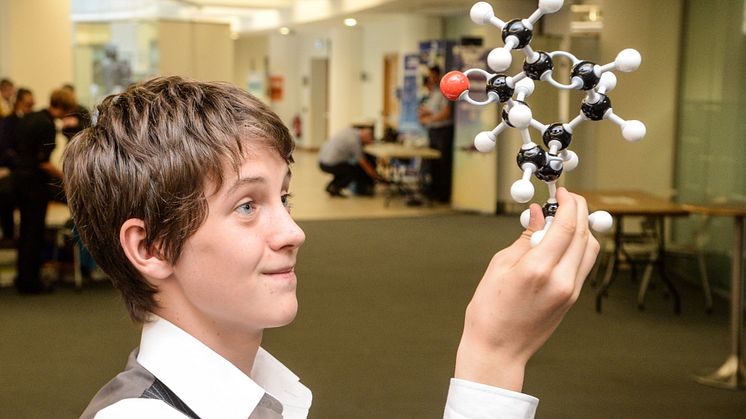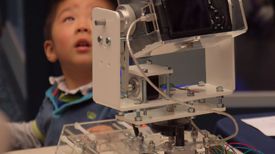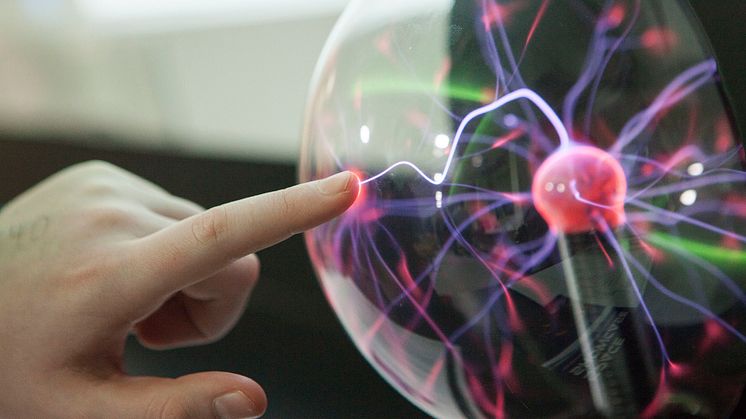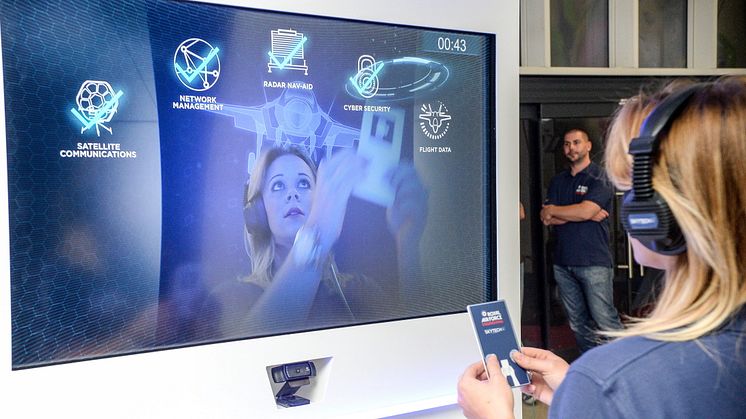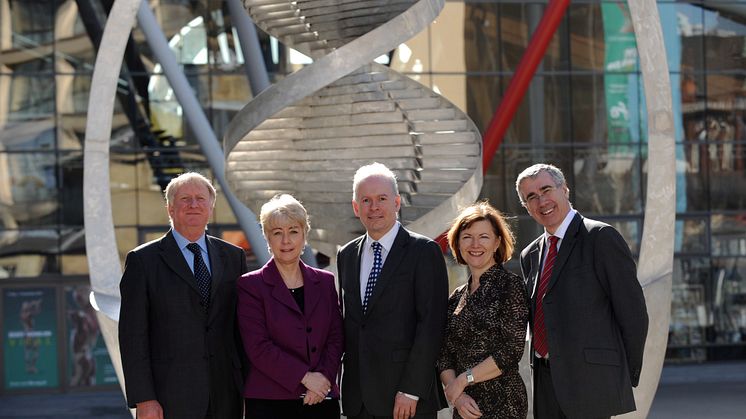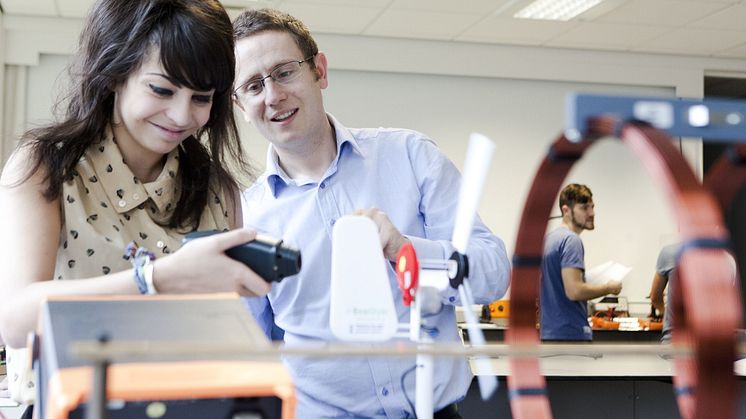
Press release -
Science week comes to a close with eclipse excitement
Think Physics at Northumbria has run a busy programme of events this to celebrate British Science Week.
The team, based in Ellison Building on City Campus, had school groups in its Think Lab most days, with children between the ages of eight and 16 having a great time learning about different aspects of physics and engineering.
The third floor of Ellison E block has resounded to the sound of children exciting about science. Think Physics has also been visiting North East schools with maker activities, while also taking part in STEM career events.
On Friday, the team hosted ‘Physics in Perspective’, a half-day course for sixth form students. After watching the eclipse (safely using eclipse glasses), there were talks from Professor Nicola Pearsall, from Northumbria’s department of Physics and Electrical Engineering, and other colleagues from the University about solar cells. Dr Jon Purdy from Hull University also discussed physics in computer games design.
Dr Carol Davenport, Director of Think Physics, said: "The buzz around the eclipse has been fantastic.
"Across the UK people have been talking about what is going to happen, the eclipse has been on BBC radio and TV, and here in Newcastle the eclipse was shown on a big screen at Gray’s monument.
"All this really shows the great interest in science and the natural world that there is.
At Think Physics we’ve been working with local schools to help them to use the eclipse to inspire their students and to think physics."
The last event for Think Physics’ science week will be a family show entitled ‘Explore your Universe’ which will place on Saturday morning and will see 40 parents and children in Think Lab. They will be taking thermal ‘selfies’, handling meteorites and experiencing a van de graaff generator.
Northumbria recently launched its Think Physics project to inspire more young people, especially girls and under-represented groups, to engage with Science, Technology, Engineering and Mathematics (STEM) from Early Years to Higher Education and into their careers.
The University also recently announced an investment of £6.7 million in STEM facilities, co-funded by the Higher Education Funding Council for England (HEFCE), to help drive world-class research and teaching across STEM disciplines, and an increased flow of highly-employable graduates into industry. Northumbria University provides undergraduate and postgraduate courses in Physics and Physics with Astrophysics. For more information go to:https://www.northumbria.ac.uk/physics
For more information about Think Physics go to: www.thinkphysics.org
Categories
Northumbria is a research-rich, business-focussed, professional university with a global reputation for academic excellence. To find out more about our courses go towww.northumbria.ac.uk
If you have a media enquiry please contact our Media and Communications team at media.communications@northumbria.ac.uk or call 0191 227 4571.







